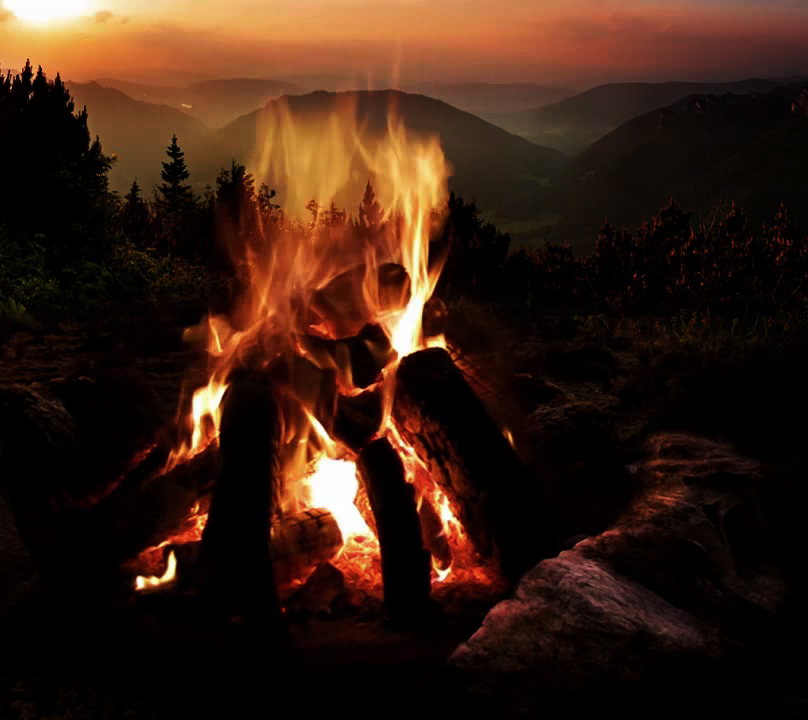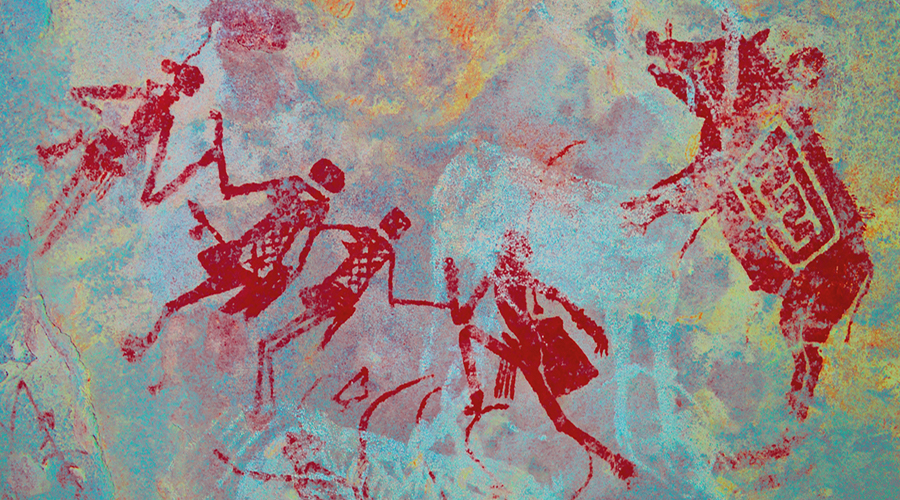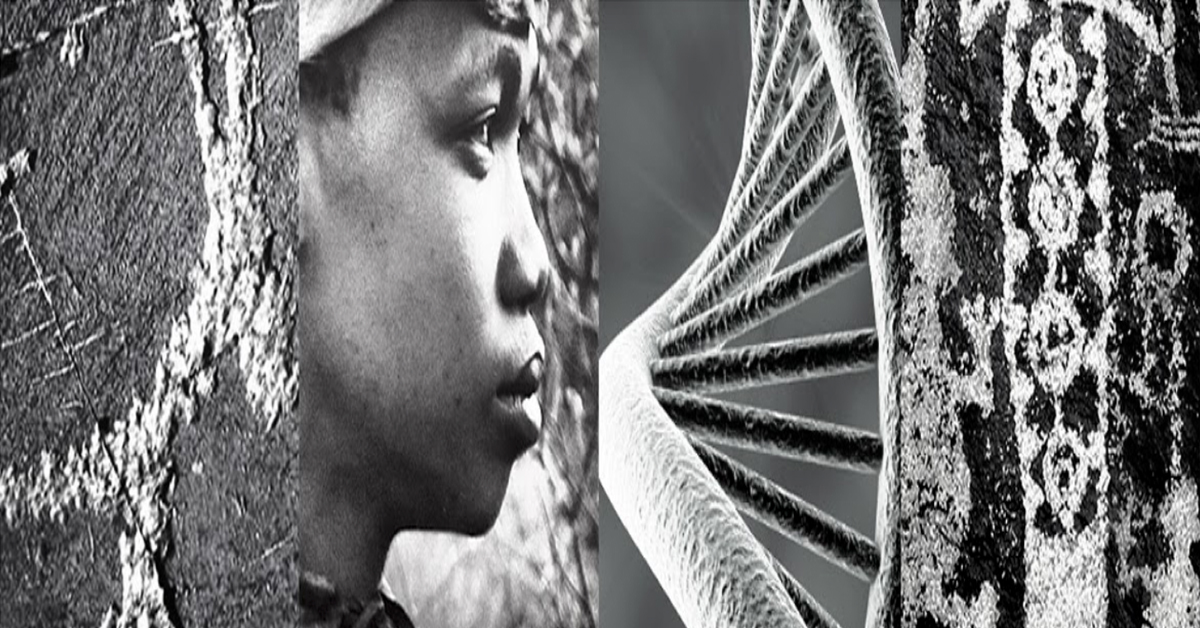


A study by Dr. Christopher D. Lynn published in the journal in Evolutionary Psychology - Hearth and campfire influences on arterial blood pressure: Defraying the costs of the social brain through fireside relaxation - reminds us that the importance of fire in human evolutionary history is widely acknowledged but the extent is not fully explored.

Dr Lynn, from the Department of Anthropology, University of Alabama, United States, explains why being in front a fire is relaxing; it lowers blood pressure, although obviously Homo erectus, credited for the first 'controlled' use of fire, would not have said that some 200,000 years ago. Fire signified a new form of control of both circumstance and environment; fire could be used for cooking, scaring away animals and for warmth. Indeed, it was a turning point in the cultural aspect of human evolution. But also then, as today, it lowers blood pressure.
Dr. Lynn and his team asked 226 adults to watch a video of a fireplace, and took their blood pressure before and after watching the video. They also asked participants to report on their experiences of the fire.
There was an average of a five percent decrease in blood pressure among participants who watched the fire with sound. The longer they watched the fire, the more relaxed they became. Among control groups who watched the fire with no sound and who viewed an upside-down picture of fire, blood pressure increased.
The hypothesis being presented is that in front of a fire all of our senses become absorbed in the experience, with an overall calming effect. Moreover, fires fostered social cohesion, and a social nexus. A controlled fire requires fore-thought and cooperation, and a successful fire meant a successful group.
Abstract
The importance of fire in human evolutionary history is widely acknowledged but the extent not fully explored. Fires involve flickering light, crackling sounds, warmth, and a distinctive smell. For early humans, fire likely extended the day, provided heat, helped with hunting, warded off predators and insects, illuminated dark places, and facilitated cooking. Campfires also may have provided social nexus and relaxation effects that could have enhanced prosocial behavior. According to this hypothesis, calmer, more tolerant people would have benefited in the social milieu via fireside interactions relative to individuals less susceptible to relaxation response. Using a randomized crossover design that disaggregated fire's sensory properties, pre-post-test blood pressure measures were compared among 226 adults across three studies with respect to viewing simulated muted-fire, fire-with-sound, and control conditions, in addition to tests for interactions with hypnotizability, absorption, and prosociality. Results indicated consistent blood pressure decreases in the fire-with-sound condition, particularly with a longer duration of stimulus, and enhancing effects of absorption and prosociality. Findings confirm that hearth and campfires induce relaxation as part of a multisensory, absorptive, and social experience. Enhancements to relaxation capacities in the human social brain likely took place via feedback involving these and other variables.
Explore the human evolutionary history in our ORIGINS section:
http://www.bradshawfoundation.com/origins/homo_erectus.php
Comment
by Bradshaw Foundation
Tuesday 21 March 2023
by Bradshaw Foundation
Tuesday 07 February 2023
by Bradshaw Foundation
Thursday 19 May 2022
by Bradshaw Foundation
Tuesday 19 October 2021
by Bradshaw Foundation
Friday 25 June 2021
by Bradshaw Foundation
Monday 09 November 2020
by Bradshaw Foundation
Tuesday 03 November 2020
by Bradshaw Foundation
Wednesday 28 October 2020
by Bradshaw Foundation
Tuesday 23 June 2020
by Bradshaw Foundation
Thursday 04 June 2020
by Bradshaw Foundation
Thursday 14 May 2020
by Bradshaw Foundation
Tuesday 12 May 2020
by Bradshaw Foundation
Wednesday 19 February 2020
by Bradshaw Foundation
Tuesday 21 January 2020
by Bradshaw Foundation
Monday 20 January 2020
by Bradshaw Foundation
Thursday 28 November 2019
by Bradshaw Foundation
Tuesday 21 March 2023
by Bradshaw Foundation
Tuesday 07 February 2023
by Bradshaw Foundation
Thursday 19 May 2022
by Bradshaw Foundation
Tuesday 19 October 2021
by Bradshaw Foundation
Friday 25 June 2021
by Bradshaw Foundation
Monday 09 November 2020
by Bradshaw Foundation
Tuesday 03 November 2020
by Bradshaw Foundation
Wednesday 28 October 2020
by Bradshaw Foundation
Tuesday 23 June 2020
by Bradshaw Foundation
Thursday 04 June 2020
by Bradshaw Foundation
Thursday 14 May 2020
by Bradshaw Foundation
Tuesday 12 May 2020
by Bradshaw Foundation
Wednesday 19 February 2020
by Bradshaw Foundation
Tuesday 21 January 2020
by Bradshaw Foundation
Monday 20 January 2020
by Bradshaw Foundation
Thursday 28 November 2019
Friend of the Foundation











